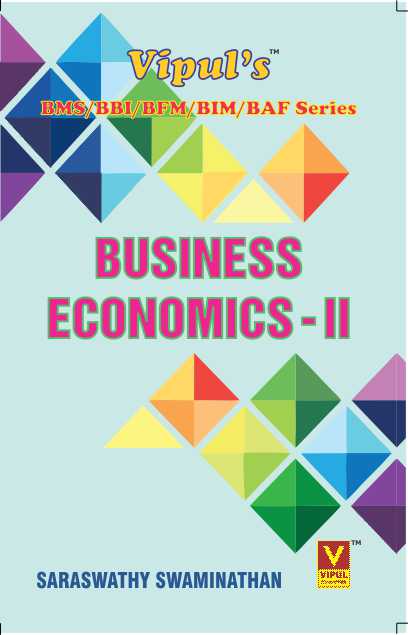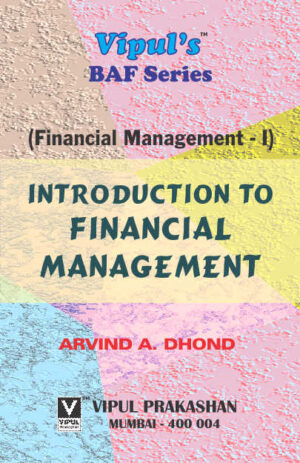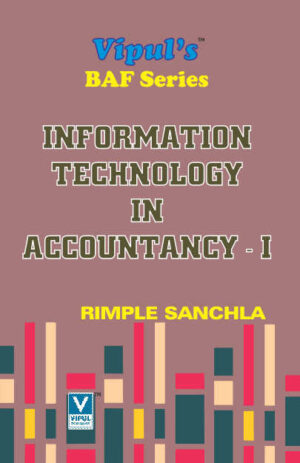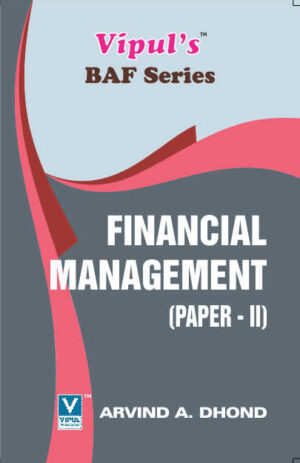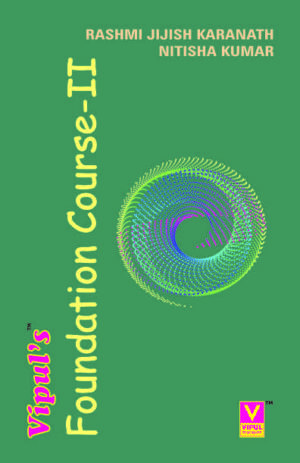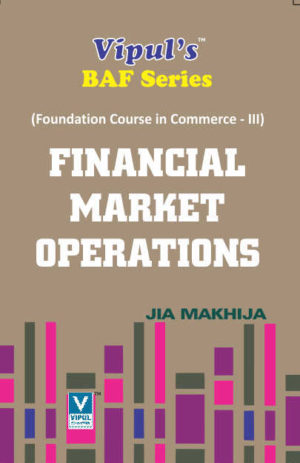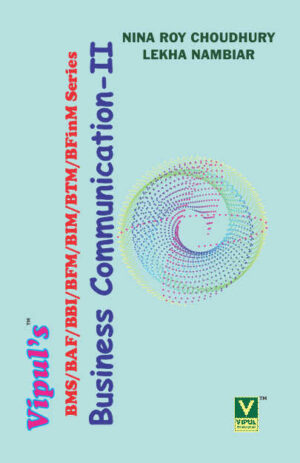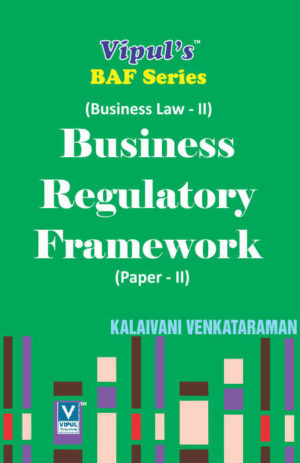Business Economics – II
₹190.00
BAF — SEMESTER – III
BMS/BBI/BFM/BIM — SEMESTER – IV
Author: Saraswathy Swaminathan
SIXTH EDITION
Description
SYLLABUS
(1) Introduction to Macroeconomics Data and Theory:
Macroeconomics: Meaning, Scope and Importance.
Circular flow of aggregate income and expenditure: Closed and Open Economy Models.
The Measurement of national product: Meaning and Importance – Conventional and Green GNP and NNP concepts – Relationship between National Income and Economic Welfare.
Short Run Economic Fluctuations: Features and Phases of Trade Cycles
The Keynesian Principle of Effective Demand: Aggregate Demand and Aggregate Supply – Consumption Function – Investment function – Effects of Investment Multiplier on Changes in Income and Output.
(2) Money, Inflation and Monetary Policy:
Money Supply: Determinants of Money Supply – Factors influencing Velocity of Circulation of Money.
Demand for Money: Classical and Keynesian approaches and Keynes’ liquidity preference theory of interest.
Money and prices: Quantity theory of money – Fisher’s equation of exchange – Cambridge cash balance approach.
Inflation: Demand Pull Inflation and Cost Push Inflation – Effects of Inflation – Nature of inflation in a developing economy.
Monetary policy: Meaning, objectives and instruments, inflation targeting.
(3) Constituents of Fiscal Policy:
Role of a Government to provide Public goods – Principles of Sound and Functional Finance.
Fiscal Policy: Meaning, Objectives – Contra cyclical Fiscal Policy and Discretionary Fiscal Policy.
Instruments of Fiscal policy: Canons of taxation – Factors influencing incidence of taxation – Effects of taxation Significance of Public Expenditure – Social security contributions – Low Income Support and Social Insurance Programmes – Public Debt – Types, Public Debt and Fiscal Solvency, Burden of Debt Finance.
Union budget: Structure – Deficit concepts – Fiscal Responsibility and Budget Management Act.
(4) Open Economy: Theory & Issues of International Trade:
The basis of international trade: Ricardo’s Theory of Comparative Cost Advantage – Heckscher-Ohlin Theory of Factor Endowments – Terms of Trade – Meaning and Types – Factors determining Terms of Trade – Gains from trade – Free Trade versus Protection.
Foreign Investment: Foreign Portfolio Investment – Benefits of Portfolio capital flows – Foreign Direct Investment – Merits of Foreign Direct Investment – Role of Multinational corporations.
Balance of Payments: Structure – Types of Disequilibrium – Measures to correct disequilibrium in BOP.
Foreign Exchange and foreign exchange market: Spot and Forward rate of Exchange – Hedging, Speculation and Arbitrage – Fixed and Flexible exchange rates – Managed flexibility.]


